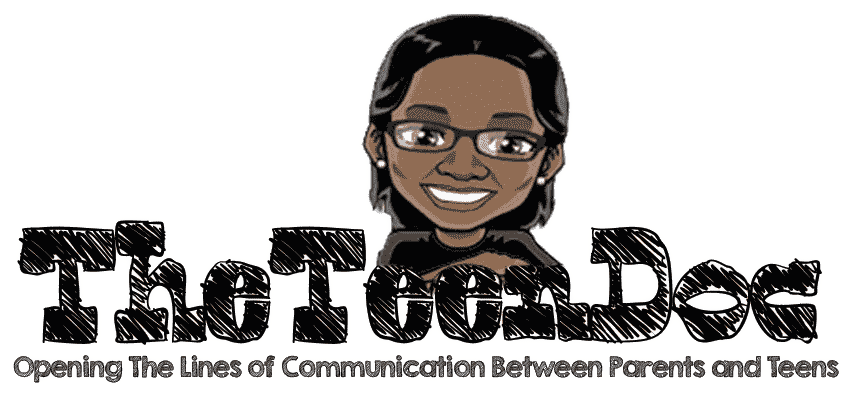
Teen & Adolescent Counseling
Helping Teens Find Their True Selves
Teen counseling is some of the most challenging work I do. It is hard to have someone talk when they do not have tools to express what they are feeling. Because we tend to be inpatient with someone who cannot just “spit it out,” we inadvertently cut off the thought processes the teen hopelessly tries to express. Issues like school failure or avoidance, depression, anxiety, addictions like gaming, food or substances are all expressions of emotional pain.


Discovering what is under the behavior takes a lot of work and commitment. Most parents are frustrated and judge their parenting harshley, which makes receiving feedback particularly hard. When I see them, they think nothing will work or that it is too late. They are scared for their kid and what they will be able to do or accomplish in this world. These are the things that I can help your teen accomplish, their purpose. So if you have tried traditional therapy or counseling and your teen feels it doesn’t work for them then try something different.
Schedule a free teen counseling consultation to help your teen articulate what they need to understand themselves better so they can interact with the world differently.
I feel like no one ever really gets me. Maybe no one can. Maybe there is something wrong with me and I am just not capable of fitting in no matter what I do.
I don’t think I’m not good enough. I just think I want to do my best. Just because a 4.2 isn’t my best doesn’t mean I have anxiety or something is wrong with me, but I know my grades could be better. I could have done better. It was probably me just being lazy because I just stopped caring about doing the work and the teacher made things really challenging. I feel like I have disappointed my parents and myself.

My Counseling Services helps teens with…
Academic challenges
Anxiety
Depression
ADHD
School avoidance
School avoidance
Sexual or gender challenges
Custody issues
Sibling rivalry
Addictions: Nicotine, eating disorders, video games, substances
Testimonials
Even though child labor laws ended in the 1930s, children still had a job. The job was becoming themselves. As we removed the duties of housework, farming chores and the industrial revolution did away with the need for children to work in addition to changing attitudes, we did not need children to physically work.
We parent to change behavior not develop an emotional acumen.The emotional work never became as important and so parents are caught off guard when their tweens begin teen stages that are supposed to be happening when the age ends in teen. This is not the case. There are roughly three developmental stages that teens need to accomplish. They are tween or early teens, middle teens and late teens. Within each stage of development there are a core set of issues that teens should be accomplishing: their separation from parents or family, their sexual/gender identity, their values, and their body image.

Teen Counseling for Early Teens (8-13)
Early teens start as early as 8y old. This is not what most parents are expecting and this means that it catches parents completely off guard. They are so close to admiring their parents and wanting to be around them most of the time and in a day can switch to yelling about leaving them alone, social media trends and wanting to hang out with friends. This early abandonment can be so painful for parents who may not realize they enjoyed the company of this kid who can’t drive and has no power to do things without them. Parents have lost their god-like status and the opinions of their parents are not as powerful for many tweens.
Parentectomy
Being with friends is critical and this means when there are problems connecting with a group or a teen is bullied then the ability to individuate from parents is thwarted and prevents the development of self. Instead, teens look to form themselves on whichever group accepts them. Of course, this means they can change who they are based on changing the group. This is because they simply do not want to be alone. These groups even when they are the chess club are the way separation from friends and family occurs . These are the early stages of discovering who they are as an individual.
Sexual and Gender orientation
Early teens also try to figure out their gender and sexual orientation. So it really should not be surprising when they start to experiment with sexual jokes or material when they like someone even if they are never alone with someone. There can be concern about experimenting with sexual orientation through movies, books or discussions about who they like or find attractive.
The fear of being separated from family might make this experimentation more secretive and it looks more like an asexual presentation with no reference to gender or sexual expression. For example, they like no one and people are just friends. This is important to know because children know their gender strays from the norm as early as 18 months old and they have an idea about their sexual orientation even if they can’t name it, as early as toddler or childhood years.
These two identities can influence the other in that a female gender identity makes a relationship with two women a lesbian relationship, but a cis born female who transitions to male or is nonbinary might consider his or their relationship with another woman pansexual, bisexual or heterosexual. Sexual development can be so fluid that labels are not worth attempting.
Values and morals
For a lot of a child’s life their morals and values are governed by their parents. They practice religion as their parents offer it to them as well as any other rituals or beliefs. For example, race, gender, differently abled, impoverished create a context that they have limited control over. They develop world views based on how they hear caretakers talk about global issues or even travel. So much of what they are exposed to through their parents influences what they think and believe unless their parents do not discuss it or they do not align with what their parents believe. This is the teen’s request for political correctness, urging social changes for environmental causes or the introduction of new philosophies that can further separate the generation gap like veganism or posting more intimate details of their lives.
Body Image
Your teen’s view of their body at this age can come from comparison. There are several sources for this and we see it in magazines, social media, older siblings, friends and parents. There are other issues that we rarely consider like chronic weight or medical issues, disfigurement due to an accident or procedure. There can be eating disorders, self harm and overeating all in a way to see the body fit in. Again, external triggers are incredibly impactful, but more so are the internal thoughts the teen has about themselves that plays a critical role in what they do to try and hide something about themselves.
Teen Counseling for Middle Teens (14-16)
Middle teens have more intellect due to brain growth. They have a poorly developed frontal lobe which eventually does more planning and organizing and a very active amygdala that controls primitive feelings and thoughts. So there can often be high risk behavior without consideration of the emotions causing the behavior or the consequences. Consequences about grades, sex or high risk behavior may not factor in the same way because they need a developed frontal lobe for that.
Parentectomy
If the middle teen was able to separate from their parents they have a larger social group then they depend on their parents more or less depending on the parental relationship. But this can also look like being busy with clubs, responsibilities like a job and increased application of hard work to accomplish their own goals. These tasks would also keep them from being able to hang with parents. They will start to drive and this will increase their autonomy from parents as long as their parents allow this. Anxious and controlling or authoritarian parents have not allowed this individuation for the life of the teen so there can be more rebellious separation in a vocal child or incredibly passive resistance with a teen who may be angry, but shows little emotion and uses behavior instead by isolating and doing minimal work.
Sexual and Gender orientation
The middle teen may be alone with a significant other. The average teen can become sexually active towards the end of this age range. They might use their sexuality to feel good about themselves if this is the attribute they have been praised for. If they are along the spectrum of sexual identity or gender there can be gender or sexual orientation expression depending on the sociopolitical environment or parental support by coming out or supporting political entities. Homophobic or anti-LGBTQIA+ behavior or remarks can be seen when this part of the teen has to be suppressed because of fear of acceptance. Instead of support, there can be humiliation, violence and hypersexuality, especially heterosexuality.
Values and morals
Mid-teens may completely need a break from the rituals of childhood that were enforced by their family and want to skip holidays with family, or church. Separation from parents to discover what they believe allows them to be willingly present and know they are not being forced to celebrate or belong to a group that may not support all aspects of who they are. Acceptance is important to feeling we deserve love and belonging. Otherwise, teens learn acceptance by others and what others think is more important and this stunts the self development and maturity of the teen.
Body Image
Body image can play a central role in self worth as the body is a way to express themselves with revealing clothes, athletics, large clothes or hiding themselves inside a hoodie. This self image is highly influenced by previous incidences in early teen years, but even earlier events like shaming for gender curiosity, sexual assault or physical abuse can show up to affect their view of themselves.
Teen Counseling for Late Teen (17-25)
Late teens may come to rely on their parents while feeling their sense of independence if they have been allowed to be respected for their individuality. Their frontal lobe continues to develop and is complete around 25 and a half to 26 years.
This is not the same as the maturity seen in some teens who are parentified and made to do things like take care of siblings or their own children at younger ages. Their brains do not mature faster, their brains simply develop new synapses that can do something another might not like changing a diaper or completing government forms.
Parentectomy
There should be separation individuation that allows the teen to feel like their own person. This isn’t always the teen leaving the home because depending on the socioeconomic needs of the family or themselves they may not be able to leave. But, they may stay home for college, take a gap year, develop a business, work on an internship or decide to work. This does not mean they have not individuated in the development of self and who they are as a separate individual.
Sexual and Gender orientation
For teens who have been allowed to express themselves they are continuing to explore who they are along both spectrums either on their own or through the relationships with friends, groups, and personal aspirations.
Values and morals
The late teen continues development of their own views and as they gain more freedom by working or volunteering they might meet new people who influence them as they influence others. The hope is they are open to others and allow a constant exchange of their values on others and vice versa.
Body Image
If there are no major issues there can be some appreciation for their body along with the development of their unique style even if it is sweatpants and a hoodie. Health issues are not yet serious concerns but if they have been present through weight concerns or what is considered disfigurement either ethnic, racial or gender this can become serious enough to create dysfunction or a desire to change through plastic surgery, increased exercise or creative expression through tattoos or piercing especially as these changes allow them to express themselves.
These are the basic teen developmental milestones and what they should be accomplishing in each stage. If you have more questions or concerns or this has helped you crystallize wanting to support your teen transition through these stages in a healthy way, schedule a free consultation with Dr. O


